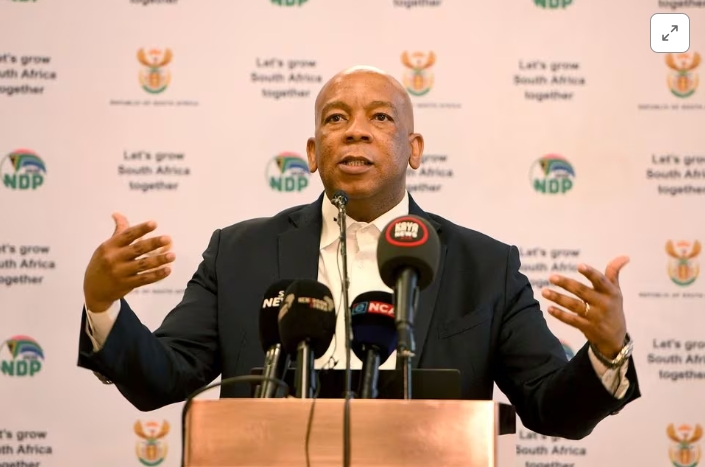
Businesses and households have been left without power for up to 10 hours on some days this year, hitting South Africa's economic output and prompting plans to boost generation.
However, officials said on Tuesday that the new nuclear power procurement is not a short-term fix, as the first units are only expected to start operating in a decade.
"We are excited about the prospects and we are confident about our ability to ensure that within a reasonable period of time we are able (to announce) preferred bidders," Electricity Minister Kgosientsho Ramokgopa told a news conference.
Ramokgopa reiterated that South Africa, which has the African continent's only operational nuclear power plant, Koeberg, close to Cape Town, will build new ones at a scale and pace it can afford.
South Africans are wary of the government's nuclear programme after a 9,600 MW nuclear deal with Russia, initiated during Jacob Zuma's scandal-plagued presidency, was thwarted by a court challenge in 2017.
Meanwhile, financing and long-term storage options for radioactive waste remain concerns, environmentalists say.
"Nuclear should not be on the agenda. It is a myth that it is a climate change solution, a myth that it is the cheapest form of electricity ... there is no way civil society can accept this," said Liziwe McDaid, a local environmental campaigner.
Koeberg, with a capacity of around 1,900 MW, provides around 5% of the country's energy needs out of a nominal installed capacity of about 46,000 MW.
Government is awaiting regulatory approval after applying for a 20-year extension to Koeberg's operating licence which expires in July 2024.
South Africa expects to commission the first unit of the new 2,500 MW nuclear project by 2032/33, said Zizamele Mbambo, a senior energy ministry official.
"We must issue an open and transparent tender that makes sure there is cost competitiveness," Mbambo added.